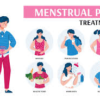The Role of Ayurveda in Supporting Postpartum Health
The Role of Ayurveda in Supporting Postpartum Health period is a time of significant transformation for new mothers, marked by physical recovery, emotional adjustment, and the demands of nurturing a newborn. While modern medicine offers various approaches to support postpartum health, traditional systems of medicine like Ayurveda provide holistic and time-tested strategies that can complement conventional care. Ayurveda, a 5,000-year-old system of medicine from India, focuses on balancing the body’s energies and promoting overall well-being. This blog explores how Ayurveda can support postpartum health, addressing physical recovery, emotional balance, and the transition into motherhood.
Understanding Postpartum Health Through an Ayurvedic Lens
In Ayurveda, the postpartum period is considered a crucial time for a woman’s health and well-being. This phase, often referred to as “Vata Vrudhi,” is characterized by an imbalance of the Vata dosha (air and ether elements), which is thought to be aggravated by the physical and emotional changes of childbirth. Ayurveda emphasizes the need to restore balance to support recovery and prevent future health issues.
Key Ayurvedic Principles for Postpartum Care

1. Restoring Digestive Health
Ayurveda places significant emphasis on Agni, or digestive fire, which is believed to be weakened during pregnancy and childbirth. Strengthening Agni is crucial for postpartum recovery. The Ayurvedic approach includes:
- Warm, Nourishing Foods: Consuming warm, cooked foods that are easy to digest can help restore digestive balance. Traditional postpartum diets include rice porridge, stews, and soups made with nourishing herbs and spices like ginger, turmeric, and fenugreek.
- Herbal Teas: Herbal teas such as fennel, cumin, and ginger can aid digestion and reduce bloating. These herbs also help soothe the digestive tract and support overall gastrointestinal health.
2. Balancing Vata Dosha
The postpartum period often leads to an increase in Vata dosha, which can manifest as dryness, anxiety, and irregularity. Ayurveda recommends:
- Abhyanga (Oil Massage): Regular oil massages using warm sesame or coconut oil help to ground Vata and improve circulation. This practice not only soothes the body but also provides relaxation and emotional support.
- Hydration and Moisture: Keeping hydrated and using moisturizing lotions can help counteract the dryness associated with Vata imbalances. Drinking warm herbal teas and broths can also support hydration and nourishment.
3. Supportive Herbs and Supplements
Ayurveda offers various herbs that are believed to support postpartum recovery:
- Shatavari: Known for its rejuvenating properties, Shatavari is often used to support reproductive health, balance hormones, and promote lactation.
- Ashwagandha: This adaptogenic herb helps manage stress and support energy levels, which is particularly beneficial during the demanding postpartum period.
- Turmeric: With its anti-inflammatory properties, turmeric can help reduce inflammation and support overall healing.
4. Emotional and Mental Well-being
Postpartum emotional health is crucial for overall recovery. Ayurveda provides several strategies to support mental well-being:
- Meditation and Yoga: Gentle yoga and meditation practices can help manage stress and anxiety. Specific postures and breathing exercises are designed to calm the mind and restore balance.
- Routine and Self-Care: Establishing a daily routine that includes self-care practices such as warm baths, adequate rest, and time for relaxation can help stabilize emotions and support mental health.
Practical Tips for Incorporating Ayurveda into Postpartum Care

1. Create a Postpartum Plan
Develop a comprehensive postpartum plan that includes dietary recommendations, self-care practices, and mental health support. Collaborate with an Ayurvedic practitioner to tailor the plan to your specific needs and constitution.
2. Incorporate Ayurvedic Foods
Focus on a diet that includes cooked, warm foods with a balance of sweet, sour, and salty flavors. Incorporate spices like ginger, cinnamon, and cardamom to enhance digestion and provide comfort.
3. Engage in Gentle Exercise
While strenuous exercise may not be suitable immediately after childbirth, gentle yoga and stretching exercises can aid in physical recovery and emotional well-being. Practices such as restorative yoga or postpartum yoga classes can be beneficial.
4. Utilize Herbal Remedies
Incorporate Ayurvedic herbs and supplements into your routine as recommended by a qualified practitioner. Be sure to consult with a healthcare provider before starting any new supplements, especially if you are breastfeeding.
5. Focus on Rest and Relaxation
Prioritize rest and relaxation to support your body’s natural healing processes. Utilize practices such as Abhyanga (oil massage) and meditation to promote relaxation and balance.
Integrating Ayurveda with Modern Care
While Ayurveda offers valuable insights and practices for postpartum health, it is essential to integrate these approaches with modern medical care. Collaborate with healthcare professionals to ensure that your postpartum plan is comprehensive and addresses all aspects of your health. Combining Ayurvedic practices with conventional care can provide a well-rounded approach to postpartum recovery.
Conclusion
The Role of Ayurveda in Supporting Postpartum Health period is a time of profound change and adjustment. Ayurveda, with its holistic approach to health and well-being, offers valuable tools and strategies to support recovery and balance during this critical time. By focusing on restoring digestive health, balancing Vata dosha, incorporating supportive herbs, and prioritizing emotional well-being, new mothers can enhance their postpartum experience and lay the foundation for long-term health. Integrating Ayurvedic principles with modern medical care can provide a comprehensive approach to postpartum health, ensuring that new mothers receive the support they need during this transformative period.








Leave a reply